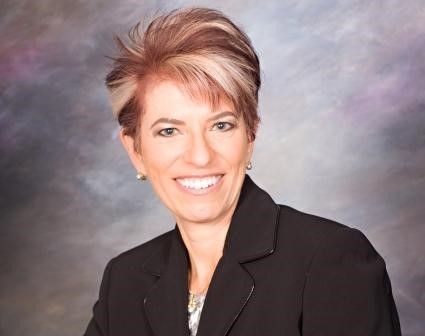
03 Feb 2021
Get to Know Our Expert Trainers – Jill Gover, Ph.D.
We sat down with SAGECare Trainer, Jill Gover, Ph.D., and Manager of the Behavioral Health Clinic and Clinical Psychologist with Desert AIDS Project (DAP), and asked her five questions.
How and why did you get started as a SAGECare certified trainer?
For the past decade my area of interest and expertise as a psychologist has been LGBT older adults. As the former Director of the Behavioral Health Clinic at the LGBTQ Community Center in Palm Springs, and now in charge of the Behavioral Health Clinic at the Desert AIDS Project (DAP), my commitments to LGBT+ older adults have been both professional and personal. As I age myself, I understand on multiple levels the issues facing LGBT+ elders. I recognize the intersectionality of political, social, and psychological factors that adversely impact health, and I want to do my part to reduce stigma, discrimination, and health disparities for this population that is often left feeling invisible and vulnerable. While at the LGBTQ Center, I presented numerous workshops on this topic, and had the pleasure to meet SAGE staff on several occasions. I’ve been impressed with the outstanding work this organization has been doing for many years, so in 2016, when offered the chance to become a SAGECare certified trainer, I immediately accepted.
What is your background?
I identify as a cisgender Jewish lesbian feminist, born and raised in NYC, and moved to the San Francisco Bay Area in 1970 to attend university. I earned my Doctorate in clinical psychology at the Center for Psychological Studies in Berkeley and obtained my B.A. in psychology and M.A. in counseling at Sonoma State University. For 15 years I was the Coordinator of Student Assistance Programs for the Vallejo Unified School District, responsible for developing a large internship program and bringing mental health services into the schools. For 13 years, I was the Director of Mental Health Services for a rural Federally Qualified Health Center in northern California, responsible for integrating behavioral health into a primary care setting. In 2010 I moved to Palm Springs and worked as a clinical psychologist at the Student Health Center at College of the Desert. I joined the staff at The LGBTQ Center in 2011, where I established a clinical internship program for mental health professionals and created a low-cost mental health clinic for the community. In addition, as part of a collaborative project with the Palm Springs Unified School District, I developed a Suicide Bullying Prevention Program with a special emphasis on LGBTQ+ youth, that was delivered to every 9th grader in the school district. I specialize in addiction and co-dependency, anxiety and depression, behavioral health, stress management, aging, HIV, and LGBTQ issues. I’ve developed psycho-educational curriculum on peer counseling, anger management, LGBTQ youth suicide prevention, children of alcoholics, chronic pain management, and LGBT aging. Over the years, I’ve delivered numerous workshops and trainings throughout California on a variety of mental health topics.
What is the best story you can provide from your experience as a trainer?
Whenever I have the opportunity to interact with my audience, I always learn something new. One time there was a woman in the workshop who stared at me with a disapproving glare, and asked combative questions with an accusatory tone of voice throughout the lecture part of the workshop. I was sure she hadn’t heard a word of what I was saying and had decided before I opened my mouth that she was NOT going to like this presentation. However, as the workshop progressed, and she had the opportunity to discuss the content in small groups with other participants, she shifted in attitude and demeanor. At the end of the workshop, when asked for feedback, she gave me the most glowing review of anyone that day! I realized that what was most important in changing her perspective was the interactive element of the presentation, and I always emphasize that portion of the workshops.
Tell us why you feel LGBT cultural competency training is essential?
Since the beginning of the Gay Rights Movement in the late 1960’s, education and training have proven to be essential in our quest to change hearts and minds. Societal shifts in mores and values come with greater understanding of those who are different. As human beings we fear what is unfamiliar. LGBT cultural competency training breaks down the fear and allows a connection on a human level that is necessary to eliminate decades of prejudice and fear. When we provide training for healthcare providers that provides a safe space to explore bias, stereotypes, and stigma, we are improving healthcare outcomes for our aging LGBT population. Moreover, by teaching a new generation to honor and appreciate how hard LGBT older adults have fought for basic rights, and to recognize the residual trauma that is still there as a result, we will also develop allies in a younger generation of healthcare providers.
What advice do you have for allies?
The most important and powerful support comes from listening. Each person has a unique story to tell and a need to be heard. When allies listen carefully, and communicate concern and care, healing occurs. The other important piece is for allies to stand up and courageously speak out when they witness discrimination, prejudice, or bullying. It’s never easy to confront bigotry, in any form, but when allies add their voices to the public conversation, the protest gets louder and stronger. We would not have progressed politically as a community if it were not for the support of our allies. Coalitions are essential for promoting positive change.
